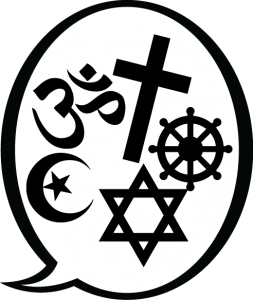By Corey Patterson
Marvel Comics fans undoubtedly remember the pivotal moment in Peter Parker’s life that led him to become the crime-fighting hero we know as Spider-Man. They recall how his Uncle Ben was murdered by a criminal Peter could have stopped in an earlier confrontation, but chose not to. All of these events would culminate in an important and often misquoted vow, that “with great power there must also come great responsibility.” As a result, Spider-Man fans all over the world saw a drastic change in Peter’s life philosophy—instead of continuing to use his power to enjoy unlimited freedom, he learns that power requires duty and becomes a vigilante.
However, there was another important change Peter underwent during this profound experience that most people overlook. He doesn’t take on this new “job” just for his Uncle Ben’s sake. By donning the Spider-Man mantle, we see Peter move from a self-interested love to an unconditional love that seeks the good of all.
Nineteenth century philosopher and theologian Soren Kierkegaard wrote much about the distinction between these two forms of love. First he speaks of “preferential love,” a concept he derives from two Greek words from the Christian New Testament: “eros,” which translates as romantic love, and “philia,” the love of family of friends. The second type of love that Kierkegaard references is “neighborly love,” based on the Greek word “agape” meaning unconditional, sacrificial love.
Kierkegaard claims agape is the only true love. In Works of Love, he lays out the duty, or “responsibility,” that agape love requires of us:
“Only when it is a duty to love, only then is love eternally secured against every change, eternally made free in blessed independence, eternally and happily secured against despair” (44).
According to Kierkegaard, only the love which is bound by duty is unconditional love. Because God loves us with agape, we are called to love others in a similar way. This is what we were created to do; in a paradoxical sense, having a duty to love others allows one to truly live freely.
If we look at Peter’s character in the beginning of the story found in Amazing Fantasy #15, it’s clear his conception of love was strictly preferential. He cared for his aunt and uncle out of heartfelt “philia,” but reserved it for no one else, as shown by Peter’s statement upon receiving a telescope as a birthday present:
“They’re the only ones who’ve ever been kind to me! I’ll see to it that they’re always happy, but the rest of the world can go hang for all I care!”
As the story shows us Peter’s interactions with classmates and teachers, it’s clear most people either ignore or bully him. He’s an outcast who finds no joy in the high school experience. In contrast, Aunt May and Uncle Ben have loved Peter with all their hearts. It’s easy to see why he cares for them and rejects the rest of the world as it has rejected him.
After gaining amazing powers from the radioactive spider bite, Peter puts his newfound abilities toward money-making in show business. He appears on talk shows to bring in much needed money to help May and Ben pay their ever-increasing bills. While this is a noble cause, Peter’s focus on his inner circle also reveals an increasing preferential love.
One of the most telling scenes in the story shows us a crazed paparazzi surrounding Peter as Spider-Man, who manages to retreat into a nearby corridor. Peter then witnesses a criminal attempt a getaway through this corridor. Unfortunately, Peter does nothing to stop him, despite having more than enough power to do so. When later pressed by a police officer as to why he let the criminal escape, Peter’s preferential love effectively transforms into pure selfishness, as shown in this line:
“Sorry, pal! That’s your job! I’m through being pushed around — by anyone! From now on I just look out for number one. That means — me!”
Peter lets his preferential love arrive at its inevitable conclusion: exclusive love of self. Unfortunately, the timing could not have been worse, as the same criminal goes on to murder Ben.
As a result of this experience, Peter undergoes a “conversion.” If he had cared about the world around him and stopped the criminal, Ben would still be alive. So he pledges to take on the responsibility of city protector and use his power to prevent horrific events like this from happening to anyone else. And while this responsibility seems like an awfully huge burden, Peter recognizes that protecting your loved ones inevitably involves protecting others.
Kierkegaard calls this agape love the only “true” love, as it allows the lover to see others as fellow human beings made in the image of God. This love shows no preferential treatment for others but freely loves, which is its duty. Keeping this in mind, Peter realizes that failing to love and protect the world around you can lead to harm toward those closest to you.
Maybe you don’t have amazing abilities like Peter, but every person has their own individual strengths. Some use their talents to improve their own lives while others use them to protect their families. But Spider-Man’s origin story calls even ordinary people to do more—to use their unique gifts in service of the world as a whole because it is the only way to truly love.
Corey Patterson is a writer and webmaster. He is passionate about the synthesis of theology and geek/pop culture stories. His interests lie primarily in superhero and fantasy genres. Check out his blog here.
References
Kierkegaard, S. (1847). Works of Love. Harper Torchback Hong Translation (1962).
Lee, S., Ditko, S.(1962). Amazing Fantasy #15. Marvel Comics.

Nice piece.
LikeLike